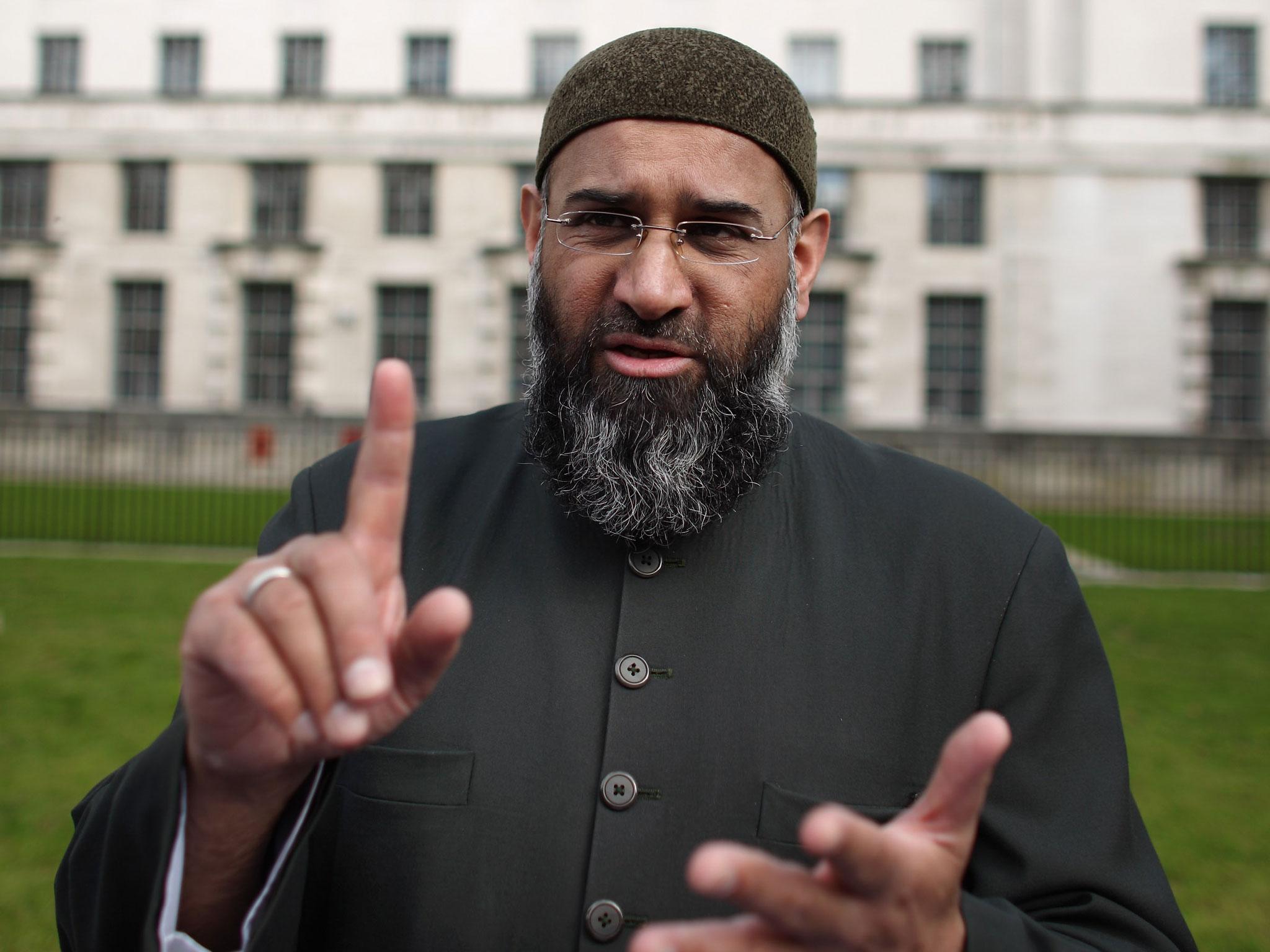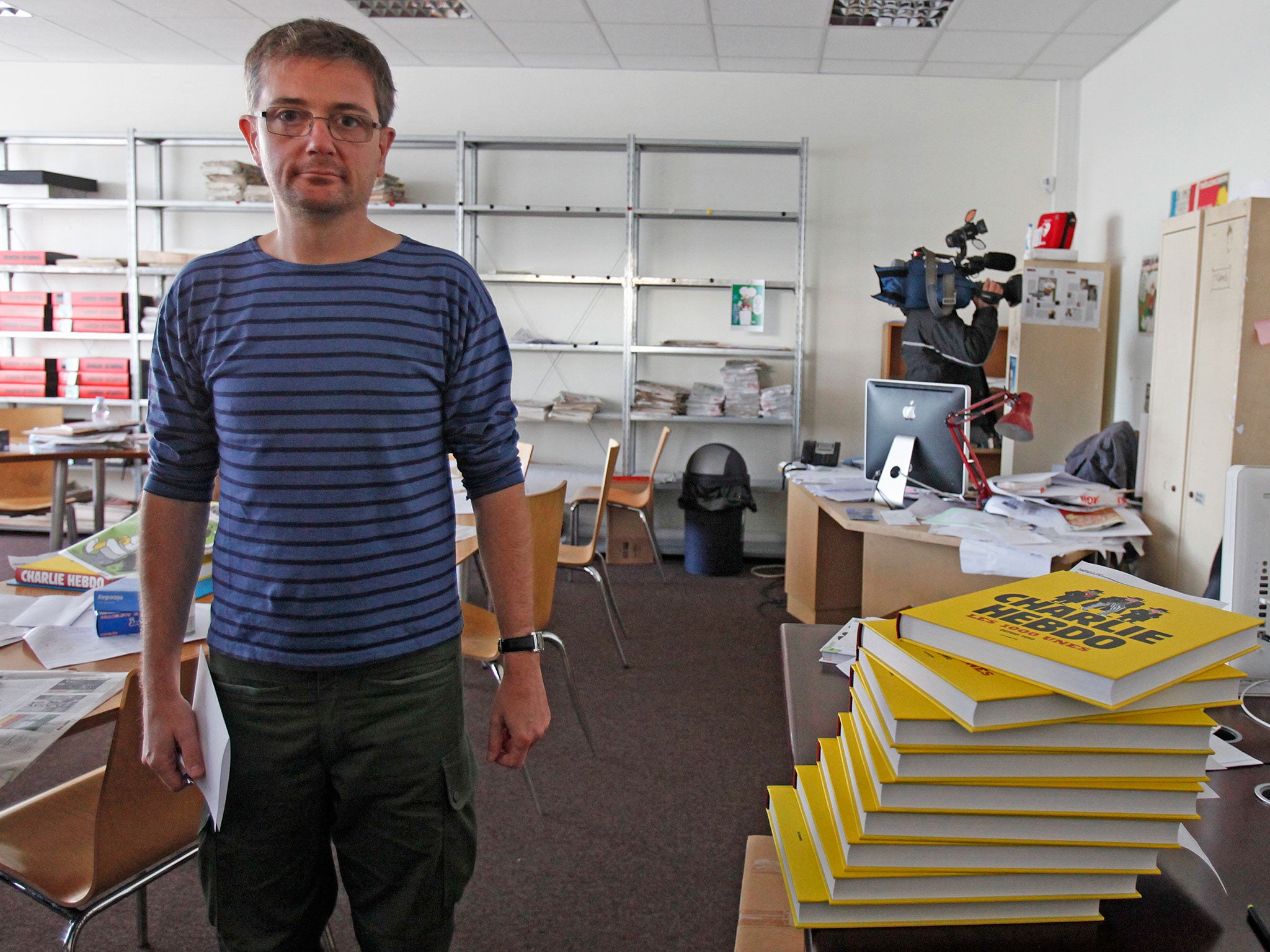Charlie Hebdo: Radical cleric Anjem Choudary calls cover depicting Mohamed an 'act of war'
London-based preacher said Sharia court would punish the drawing with death

The cartoon of the Prophet Mohamed on the cover of Charlie Hebdo's first edition since the massacre has been described as an “act of war” by a London-based Islamist cleric.
The cover depicts the Prophet with a tear falling down his cheek, holding a sign reading "je suis Charlie", replicating the phrase used on banners, stickers, clothes and social media as a show of solidarity in the wake of last week's attacks.
But radical preacher Anjem Choudary said “ridiculing” Mohamed is attacking his personality, calling the latest cartoon “extremely serious”.

To depict Mohamed in this way is “attacking the honour of the Prophet” as most Muslims do not draw or depict him in any way because it is deemed to be sacrilegious, Mr Choudary said.
He added that if the “act of war” was tried in a Sharia court it would carry capital punishment.
The 47-year-old, who lectures in Sharia law, was arrested in September as part of an investigation into Islamist terrorism but later bailed.
Mr Choudary described Charlie Hebdo's cover as a “blatant provocation” and claimed insulting Islam and Muslims is “part of the war that is taking place”.
People should be “sensible and sensitive to the emotions and the feelings of the Muslims”, he added, accusing authorities of refusing to “nip it in the bud”.
Immediately after the the Charlie Hebdo massacre last week, Mr Choudary wrote an open letter entitled "People know the consequences" where he argued that "Muslims do not believe in the concept of freedom of expression" because they submit to the commands of Allah alone.
The radical preacher founded the banned al-Muhajiroun network, which was classified as a terrorist organisation by the British government and has been linked to extremists including Michael Adebolajo, who murdered Lee Rigby.
Mr Choudary previously protested against cartoons of the Prophet Mohamed carried in Danish publications outside the country's embassy in London and was fined £500 for organising the illegal gathering.
In January 2010, shortly before he become Prime Minister, David Cameron said Mr Choudary needed “to be looked at seriously” because he strays “extremely close to the line of encouraging hatred, extremism and violence”.
Last year, he claimed he would renounce his British citizenship to go and live under Isis rule in Syria but could not leave the country because his passport has been seized by anti-terror police.
Keith Vaz, chairman of the Commons home affairs select committee, responded: “If he wants to go, he should be allowed to go. I think that would be a much better scenario than having him stay...people would like to see the back of him.”
Additional reporting by Press Association
Join our commenting forum
Join thought-provoking conversations, follow other Independent readers and see their replies
Comments
Bookmark popover
Removed from bookmarks